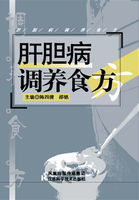"I leave you at your zenith, Sire," said Fouche. "You send me to Rome as governor in the hope that I will get the Roman fever and die.
I know it well; but let me tell you that the reaction is nearly due, and with the loss of your stage manager the farce begins to pall.
Farewell. If you can hook yourself on to your zenith and stay there, do so, but that you will I don't think."It was as Fouche said. Perplexities now arose which bade fair to overwhelm the Emperor. For a moment they cleared away when the infant son of Marie-Louise and Bonaparte was born, but they broke out with increasing embarrassment immediately after.
"What has your son-in-law named his boy, Francis Joseph?" asked Alexander of Russia.
"King of Rome," returned the Austrian.
"What!" cried Alexander, "and not after you--or me? The coxcomb! Iwill make war upon him."
This anecdote is here given to the world for the first time. It is generally supposed that the rupture of friendly relations between Alexander and Bonaparte grew out of other causes, but the truth is as indicated in this story. Had Fouche been at hand, Bonaparte would never have made the mistake, but it was made, and war was declared.
After a succession of hard-fought battles the invading army of the Emperor entered Moscow, but Napoleon's spirit was broken.
"These Russian names are giving us paresis!" he cried. "How I ever got here I don't know, and I find myself unprovided with a return ticket. The names of the Russian generals, to say nothing of those of their rivers and cities, make my head ache, and have ruined my teeth. I fear, Davoust, that I have had my day. It was easy to call on the Pollylukes to surrender in Africa; it never unduly taxed my powers of enunciation to speak the honeyed names of Italy; the Austrian tongue never bothered me; but when I try to inspire my soldiers with remarks like, 'On to Smolensko!' or 'Down with Rostopchin!' and 'Shall we be discouraged because Tchigagoff, and Kutusoff, and Carrymeoffski, of the Upperjnavyk Cgold Sdream Gards, oppose us?' I want to lie down and die. What is the sense of these barbed-wire names, anyhow? Why, when I was told that Barclay de Tolly had abandoned Vitepsk, and was marching on Smolensko with a fair chance of uniting with Tormagoff and Wittgenstein, I was so mixed that I couldn't tell whether Vitepsk was a brigadier-general or a Russian summer-resort. Nevertheless, we have arrived, and I think we can pass a comfortable winter in Moscow. Is Moscow a cold place, do you know?"Marshal Ney looked out of the window.
"No, Your Majesty," he said; "I judge from appearances that it's the hottest place in creation, just now. Look!"Bonaparte's heart sank within him. He looked and saw the city in flames.
"Well," he cried, "why don't you do something? What kind of theatrical soldiers are you? Ring up the fire department! Ah, Fouche, Fouche, if you were only here now! You could at least arrest the flames."It was too late. Nothing could be done, and the conquering hero of nearly twenty years now experienced the bitterness of defeat.
Rushing through the blazing town, he ordered a retreat, and was soon sadly wending his way back to Paris.
"We are afraid," he murmured, "that that Moscow fire has cooked our imperial goose."Then, finding the progress of the army too slow, and anxious to hear the news of Paris, Napoleon left his troops under the command of Ney and pushed rapidly on, travelling incognito, not being desirous of accepting such receptions and fetes in his honor as the enemy had in store for him.
"I do not like to leave my army in such sore straits," he said, "but I must. I am needed at the Tuileries. The King of Rome has fallen in love with his nurse, and I understand also that there is a conspiracy to steal the throne and sell it. This must not be.
Reassure the army of my love. Tell them that they are, as was the army of Egypt, my children, and that they may play out in the snow a little while longer, but must come in before they catch cold."With these words he was off. Paris, as usual, received him with open arms. Things had been dull during his absence, and his return meant excitement. The total loss of the French in this campaign was 450,000 men, nearly a thousand cannon, and seventy-five eagles and standards.















